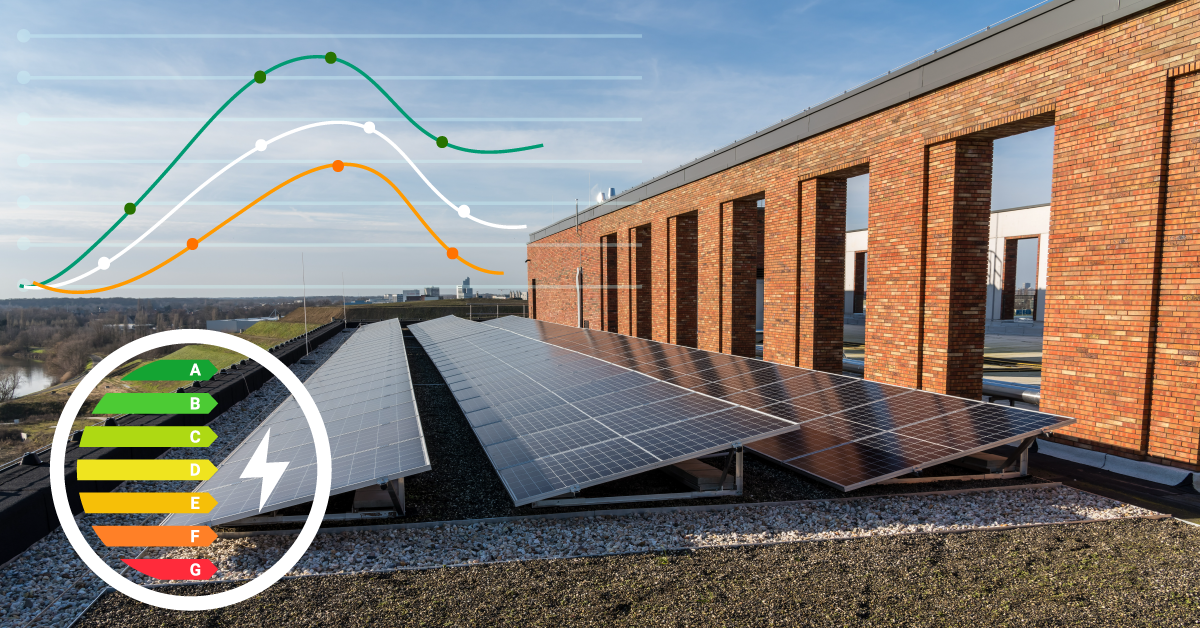You recently became a prosumer by having a grid-connected solar energy system installed in your facility. This means that you are now both a small-scale producer and consumer of energy. Next step is to let the local Distribution System Operator and your electricity supplier know about your new production capacity (which can also be done by the installation company).
Depending on your facility’s generating and consumption patterns as well as its location, there may be a limit on how much power your system is allowed to supply to the grid. In some cases, utility companies ask to restrict (aka curtail) the amount of energy that can be fed into the grid to keep the grid balanced. This type of grid reinforcement measure is known as curtailment, feed-in management or congestion management, and is used to ensure the stability and reliability of the electricity grid.
In other cases, there might not be a feed-in limitation, but utility companies offer lower than retail prices for excess energy fed into the grid or may even impose penalties for overproduction. Both feed-in tariffs and net metering policies are used to incentivize the production of renewable energy while avoiding overproduction and grid congestion.
These two situations can lead facility owners with installed solar capacity to consider solutions like smart energy management and monitoring systems that allow them to:
- Control energy production by, for example, automatically limiting the system’s power output on weekends, vacation days or when the situation in the facility calls for it.
- Control energy usage by, for example, undertaking smart charging activities to profit from price fluctuations or (in the case of no battery) by increasing the consumption of energy on-site to match production.
The need to control energy production and usage
Based on the “freedom to dispatch” principle, facilities that generate and consume energy have the right to produce or consume the amount of energy they choose, within the limits of their connection and the contractual limits of their connection agreement.
To ensure that they adhere to feed-in limitations, avoid penalties or just to prevent under-compensation for generated surplus energy, facilities are limiting the power output of their solar energy systems. Some facilities even resort to manual output limitation after the end of the weekday, considering that energy generated during the weekend will go unused.
Rather than requiring personnel to manually modify the settings and manage the energy production using the local controls or user panels of the solar energy system, facility owners often seek smart energy management systems that can:
- Remotely monitor and regulate their solar inverters.
- Automatically regulate the amount of energy being exported to the grid.
- Dynamically adjust energy production and usage based on real-time demand and prices.
The smart energy management systems
Local controls or user panels which must be adjusted manually take away the flexibility of automatically reacting to daily and unusual situations in a facility.
EVALAN offers a smart energy management system that can transform any solar energy installation into a smart solar installation, customized to meet the specific goals, needs, and situation of each customer. This can be done in stages, tailored to the individual use case, beginning with the initial stage, and progressing through the following:
- Get started with remote control. You can take the first step towards smarter energy management by controlling your solar energy system manually through an app.
- Automate with real-time insights. With our advanced automation features, you can optimize energy consumption and production in real time, responding to changes happening in the facility. Based on the situation, our system can, for example, adjust inverter production, boiler heating or battery load (if applicable), so you don’t worry about energy waste.
- Optimize returns with market insights. If you want to take your energy management to the next level, our system can also track electricity prices a day ahead and manage your energy in ways that can optimize the returns.
- Make it self-learning. By adding machine-learning capabilities, our system can over time learn the facility’s energy usage patterns and optimize production and consumption accordingly.
With EVALAN’s smart energy management system, you can take control of your energy production and usage to make the most of your solar energy installation.
For more information
Send an email to info@evalan.com.
Or book a meeting with our sales team here.
